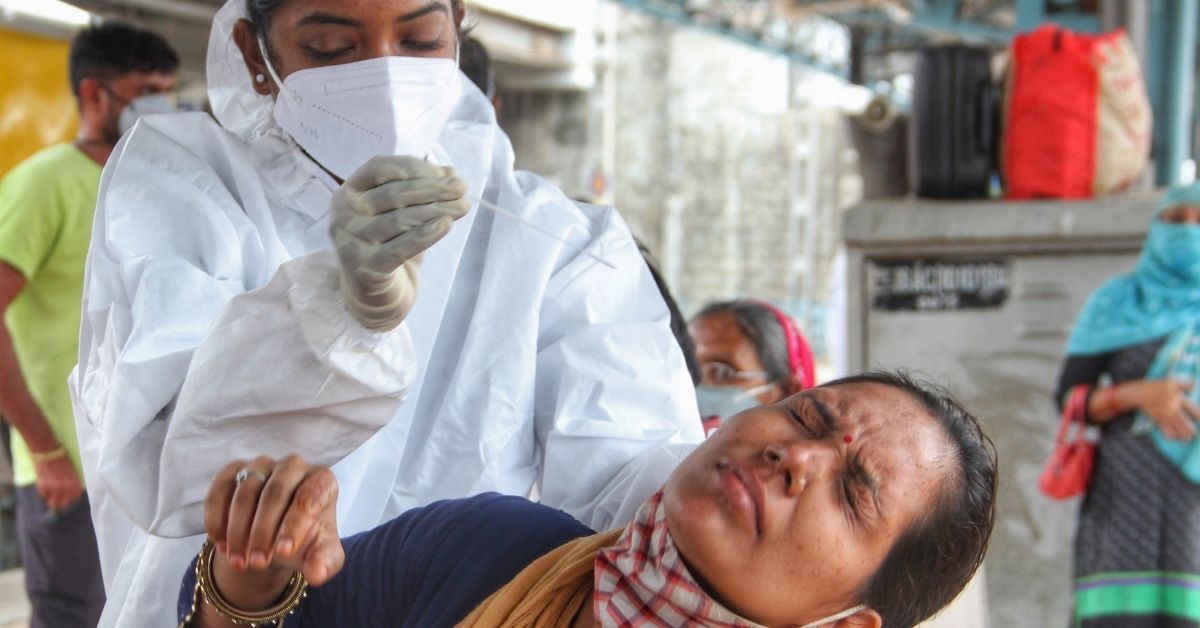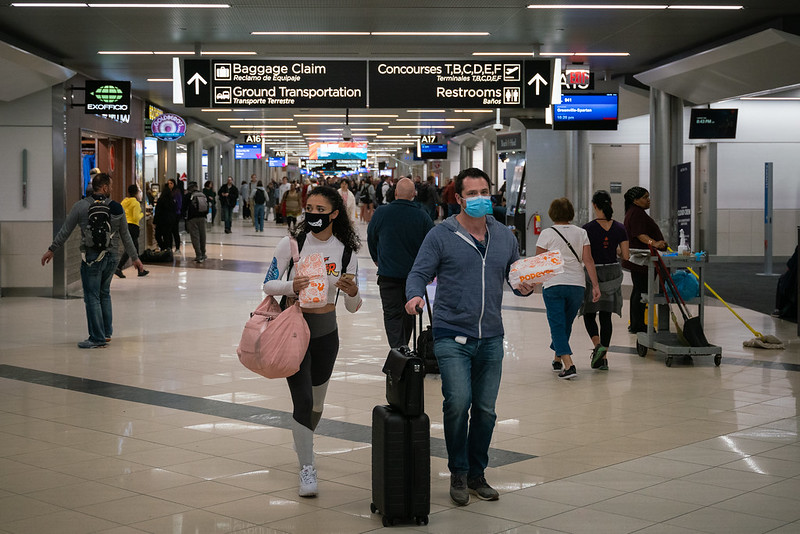Exclusive: Inside Karnataka’s COVID-19 Genomic Surveillance Committee Tracking Omicron
Wondering how COVID-19 variant Omicron is being tracked in India? We got Dr Vishal Rao from Karnataka’s Genome Surveillance Committee to explain what India is doing.

South Africa has detected a new variant of the COVID-19 virus. As per their studies, the numbers of those infected by this new variant overtook the earlier Delta variant in just two weeks.
On 26 November, the World Health Organisation (WHO) designated the new variant (B.1.1.529) as a ‘variant of concern’, named Omicron.
In response, the Government of India has mandated an action plan to be created by the recently set up Genome Surveillance Committee in Bengaluru, Karnataka.
The Genomic Surveillance Committee is expected to assist the Karnataka COVID-19 Task Force in taking decisions towards controlling the pandemic. The committee will work with the public health experts and institutions to generate surveillance data and develop public health protocols at the state level.
Another deliverable of the committee is to conduct RT-PCR tests validations and calibrations across virus mutants.
The eight-member committee’s chairman is Dr Ravi V, State Nodal officer.
“WHO first classifies new virus strains as ‘variant under investigation’, then ‘variant of interest’ and later ‘variant of concern’, depending on its behaviour. But within a span of two weeks, they have classified this as a variant of concern, which has taken the world by surprise,” begins Dr Vishal Rao, a member of the committee and chief of Head and Neck Surgical Oncology and Robotic Surgery at HCG Cancer Centre.
It took a couple of months for the Delta variant to be labelled as a variant of concern. So, the reason for this escalation, Dr Vishal states, is because of this variant’s potential to transmit the disease.
In Botswana, this virus strain has replaced Delta between 11 November to 24 November. This shows its “potential to supersede the replication and transmission potential of Delta in terms of the R-naught of the virus”.
R-naught represents, on average, the number of people that a single infected person can be expected to transmit that disease to.
Dr Vishal says this is akin to a ‘key and lock phenomenon’.
“Let’s say the first strain that came from Wuhan (D614G) was transmitted by breaking a steel lock and key system. The later variants used modified versions of silicon locks and keys and now, the latest strain, uses biometrics. The way the virus enters the lungs is becoming faster.”
“The first strain took two weeks to enter and manifest itself. We are estimating this new strain will take less time,” he adds.
Speaking about symptoms, Dr Vishal says the variant has “classical symptoms that move in a much more rapid manner”.
Vaccine Efficacy?
The major concern remains about the rapidity by which Omicron has replaced Delta.
Further, Omicron carries a higher number of mutations in its spike protein and has been said to evade vaccine-immunity.
“Studies have been conducted on synthetic viral particles with multiple mutations, which have vaccine escape potentials to prevent neutralisation of the immune system,” says Dr Vishal, adding, “Researchers have now found that Omicron seems to be more dangerous when compared to such powerful synthetic viruses.”
The vaccine efficacy is only up to 60 per cent against the Delta variant, he says.
He urges, “Unless Genomic Surveillance Teams across the country up their game, we will not be able to go head to head with the virus.”
“We are currently in a race between the vaccination and the variant, where we want the former to win. But globally, we are submerged under the issue of vaccine inequality. At this time, it is prudent to look at how to address this issue at a global level while also monitoring the genomic sequence actively on a day-to-day basis,” he says.
Tracking The Virus

About 94 passengers from South Africa entered Karnataka over the last few weeks. Among them, Dr Vishal says, “Five have tested positive for COVID-19 and three of them have been sequenced as Delta and the other two we will come to know in another day or two.”
“The Genomic Surveillance Committee is rapidly looking at sequencing more and more of the samples in order to give the BBMP (Bruhat Bengaluru Mahanagara Palike) and the Karnataka State Government regular updates on the sequences we are seeing,” he adds.
There are 118 sub-lineages of the Delta variant, of which 18 have been found in India. Explaining the working of the committee, he says, “We are seeing new forms of these lineages coming up, and we are trying to track each one of them.”
“As of now, we have seen no alarming situation. But we are still facing an impending threat to life itself,” he warns.
He adds, “The clinical community is regularly monitoring the health of the other 90 passengers from South Africa. Till now what we know is that all of them are in good health and mildly symptomatic. However, what geneticists, virologists and epidemiologists are worried about is when the virus reaches a tipping point, it will transform its biological behaviour into an aggressive phenotype.”
“We are also looking at understanding the genomic sequence of the patterns of this virus to look at predicting some biological behaviour based on bioinformatic data. With Delta there was a sudden rise in Black Fungus, so we are looking at other elements that it can activate while it is in the human ecosystem,” he says.
Around the world, the Omicron variant has been detected in Australia, Italy, Germany, Netherlands, Britain, Israel, Hong Kong, Botswana, Belgium, Switzerland and Canada.
“It is too premature to talk about any victory against COVID. We need to move towards transmission appropriate behaviour. World over, the third dose [of the vaccine] is seeming imminent,” concludes Dr Vishal.
(Edited by Vinayak Hegde)
If you found our stories insightful, informative, or even just enjoyable, we invite you to consider making a voluntary payment to support the work we do at The Better India. Your contribution helps us continue producing quality content that educates, inspires, and drives positive change.
Choose one of the payment options below for your contribution-
By paying for the stories you value, you directly contribute to sustaining our efforts focused on making a difference in the world. Together, let’s ensure that impactful stories continue to be told and shared, enriching lives and communities alike.
Thank you for your support. Here are some frequently asked questions you might find helpful to know why you are contributing?


This story made me
-
97
-
121
-
89
-
167











